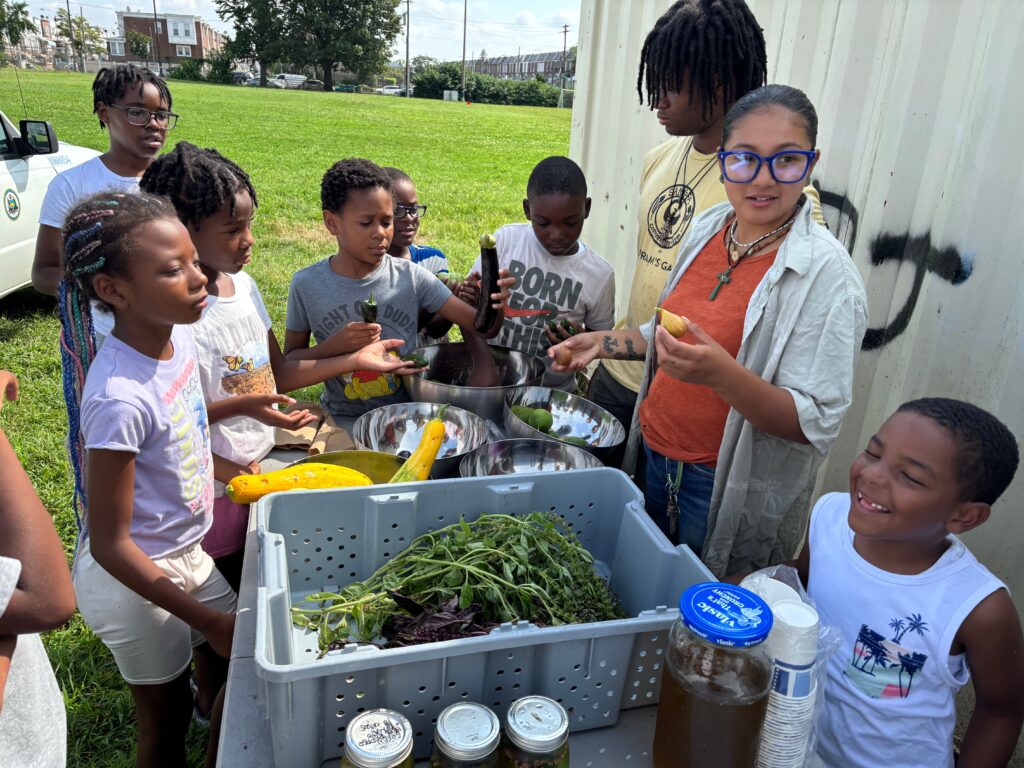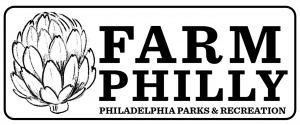Junior Farmers Summer 25 Update
After spending the spring upgrading many of our sites, we have spent the summer enjoying the garden and outdoors with our students. The Junior Farmer program works with students from ages 5-12 throughout the spring, summer, and fall at participating recreation centers. When it comes to fostering the land stewards and gardeners of tomorrow, we follow three principles.
For our youngest members of the garden, seven and younger, we focus on building connections with the land. What that means is that we spend time building positive relationships with the garden and each other. We do this by engaging our senses. For example, what does this plant smell like? What does the taste remind you of? What colors do you see in the garden, and where do you see these colors in your day-to-day? By spending time making connections between the garden and our students’ lives, we build the idea that these outdoor spaces are a part of our lives.
Once our students are older, usually between 8 and 11, we focus on exploration, not only of the garden but of their neighborhoods. We ask questions like: Have you seen this plant growing in your neighborhood? Does your grocery store sell this produce? What do the green spaces in your community look like? During this phase, we are also learning more about the plants and animals. We also spend time talking about plant characteristics. How are the plants similar? How are they different? Noticing the similarities and differences between plants develops the building blocks for plant ID skills. Lastly, we explore the non-human members of your community. We talk about pollinators, native plants, birds, mammals, ect. The point of this stage is to have the students think about their communities as a whole, not just human infrastructure.
For our oldest students, 12 and up, we focus on action. Weeding, mulching, and cleaning up the garden are just some of the responsibilities we focus on. The point or hope of this stage is to teach our students that they can make a change in the garden and their community. We go over the skills developed in the program and ask the students how they apply to their day-to-day lives or community. We have conversations about block or park clean-up events and why they are essential. We discuss the joy that gardening and nature bring, and why it’s necessary to have these spaces in every Philadelphia community.
In essence, connection building, exploration, and action form a powerful cycle. Connecting with others fuels the exploration of new ideas and opportunities, which in turn leads to purposeful action.


